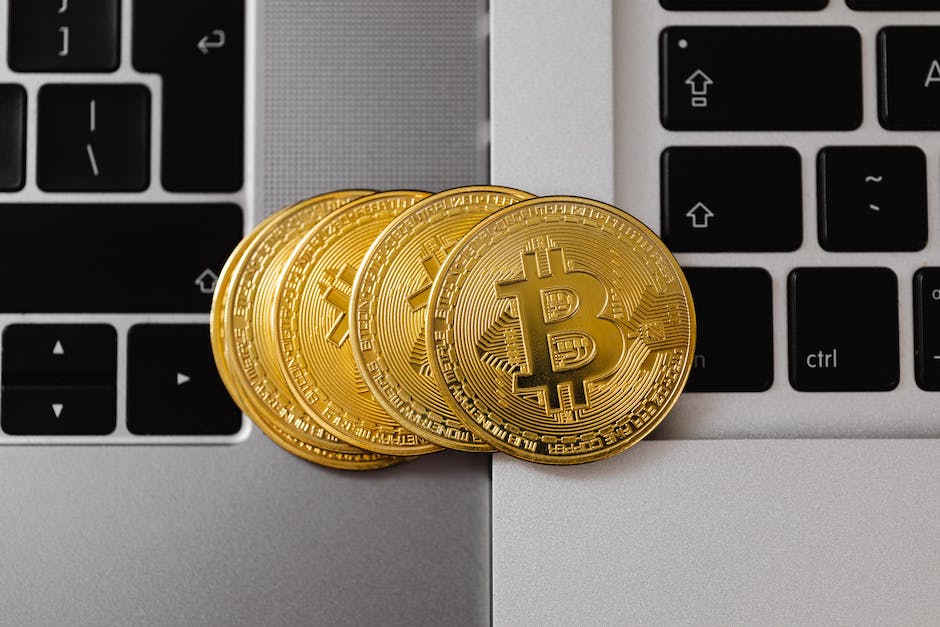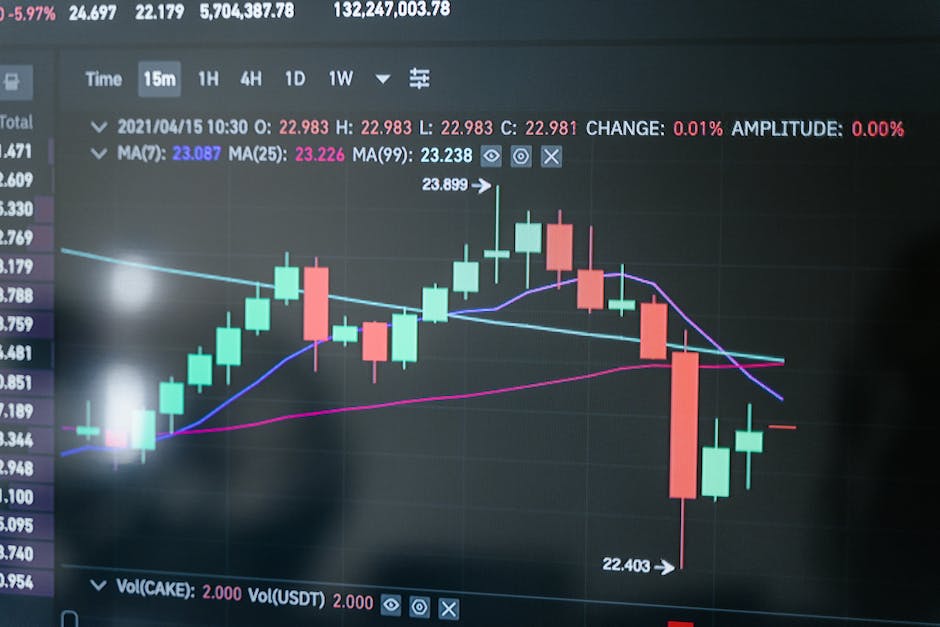
We are living in an era where the digital revolution has significantly impacted various aspects of our lives, including how we manage and invest in real estate. One of the groundbreaking advancements that has caught the attention of professionals in the industry is tokenization – the process of converting real-world assets into digital tokens that can be traded on a blockchain network.
In recent years, blockchain technology has gained recognition for its potential to revolutionize many industries, and real estate is no exception. By leveraging the decentralized and transparent nature of blockchain, tokenization offers several advantages that can transform the traditional real estate market.
Firstly, tokenization provides increased liquidity to the real estate market. Historically, investing in real estate has required substantial financial resources, making it inaccessible for many individuals or small investors. However, with tokenization, the barriers to entry are significantly reduced, allowing for fractional ownership of real estate assets. This enables investors to buy and sell tokens representing a fraction of a property, giving them the opportunity to diversify their portfolio and access previously untapped investment opportunities.
Secondly, tokenization offers enhanced transparency and security. Blockchain technology, known for its immutability and tamper-proof nature, records all transactions securely on a distributed ledger. Each transaction is transparently verified and cannot be altered, ensuring that ownership and transaction history are immutable. This transparency eliminates the need for intermediaries such as brokers or agents, reducing costs and increasing trust for both buyers and sellers. Additionally, smart contracts, programmable agreements embedded in blockchain networks, enable automated processes such as rent collection or property management, further streamlining operations.
Moreover, tokenization has the potential to unlock global real estate investment opportunities. Traditional real estate investment often requires extensive paperwork, legal processes, and compliance with local regulations, limiting investment options to specific locations. By tokenizing real estate assets, investors can participate in global markets, breaking the geographical barriers and diversifying their holdings across different countries and continents. This expanded accessibility broadens investment horizons and provides opportunities for investors to capitalize on emerging markets and trends.
In conclusion, the tokenization of real estate through blockchain technology opens up a world of possibilities for investors and professionals in the industry. With increased liquidity, enhanced transparency, and global investment opportunities, tokenization stands to revolutionize the way we invest in and manage real estate assets. As the adoption of blockchain technology continues to grow, the benefits and potential applications of tokenization are becoming increasingly evident, bringing us closer to a more efficient and inclusive real estate market.
Explanation of blockchain technology and its relevance in real estate

Blockchain technology has been the talk of the town in recent years, revolutionizing various industries and offering unprecedented opportunities for innovation. Real estate, being one of the largest and most valuable asset classes in the world, is not an exception to this wave of technological disruption. Blockchain technology, with its decentralized and transparent nature, has the potential to reshape the way we buy, sell, and invest in real estate.
At its core, blockchain technology is a distributed ledger system that securely records transactions across multiple computers. This decentralization eliminates the need for intermediaries, such as banks or brokers, and ensures that information is both transparent and tamper-proof. In the context of real estate, this means that property transactions and ownership records can be securely stored on the blockchain, enabling a more efficient and transparent process.
One of the key advantages of blockchain technology in real estate is the concept of tokenization. Tokenization refers to the process of representing real-world assets, such as properties, as digital tokens on a blockchain. These tokens can then be bought, sold, or traded just like any other digital asset. By tokenizing real estate assets, the barriers to entry for real estate investment can be significantly lowered, allowing a wider range of individuals to participate in this lucrative market.
Furthermore, tokenization also enables fractional ownership, where multiple investors can collectively own a percentage of a property, represented by tokens. This opens up a new realm of possibilities for investors, as they can now diversify their real estate portfolios by investing in fractions of multiple properties instead of being limited to a single property.
Moreover, the use of blockchain technology in real estate can enhance transparency and efficiency throughout the entire transaction process. The blockchain’s immutable nature ensures that property records are accurate, tamper-proof, and easily accessible to all relevant parties. This eliminates the need for cumbersome paperwork and manual record-keeping, reducing the chances of errors, fraud, and disputes.
Additionally, blockchain-enabled smart contracts can automate and streamline various real estate processes, such as property transfers, rental agreements, and lease administration. Smart contracts, powered by blockchain technology, can enforce predefined conditions and automatically execute transactions once the conditions are met. This not only saves time and eliminates the need for intermediaries but also reduces the associated costs and risks.
In conclusion, the tokenization of real estate through blockchain technology brings forth numerous advantages to the industry. From increased accessibility and fractional ownership to enhanced transparency and efficiency, the potential for innovation is immense. As real estate continues to embrace the digital era, blockchain technology offers a promising future, transforming the way we participate in the real estate market and unlocking new opportunities for investors, developers, and homeowners alike.
Improved liquidity through fractional ownership (tokenization)
Blockchain technology has revolutionized various industries, and real estate is no exception. The concept of tokenization, which allows for the fractional ownership of real estate assets, has emerged as a significant advancement in the industry. One of the key advantages of blockchain technology in real estate tokenization is the improved liquidity it offers through fractional ownership.
Traditionally, investing in real estate often required substantial amounts of capital, limiting access to a select few individuals or institutions. However, with the advent of real estate tokenization, this barrier has been significantly reduced. Through fractional ownership, investors can now acquire digital tokens that represent a percentage ownership of a property. These tokens can then be easily bought, sold, or traded on blockchain-based platforms, enhancing the liquidity of real estate assets.
This increased liquidity brings several benefits to both investors and the real estate market as a whole. Firstly, it allows for diversified investment portfolios. Investors can now access a broader range of real estate assets, regardless of their financial limitations. Additionally, by fractionalizing the ownership of a property, investors can spread their investment risk across multiple assets, thereby reducing the impact of potential losses.
Furthermore, improved liquidity attracts a wider range of investors, including those who may have previously been unable or reluctant to invest directly in real estate. This expanded investor pool injects more capital into the market, leading to increased competition and potentially higher property valuations. Consequently, sellers may benefit from faster transactions and higher sale prices due to the increased demand.
In addition to benefiting individual investors, improved liquidity through fractional ownership also offers advantages to real estate developers and property owners. Tokenizing real estate assets enables developers to access alternative sources of financing quickly. They can raise capital by selling digital tokens representing a portion of the property’s ownership, eliminating the need for traditional bank loans or reliance on a limited circle of investors. This democratization of real estate investments reduces dependency on central authorities and allows for more flexible funding options.
Overall, improved liquidity through fractional ownership brought about by blockchain technology has the potential to transform the real estate market. By enabling a broader investor base and easing the process of buying, selling, and trading real estate assets, tokenization fosters a more accessible, efficient, and dynamic marketplace. As more stakeholders embrace this technology, the advantages of blockchain in real estate will continue to unfold, shaping the future of the industry.
Accessibility and global investment opportunities (tokenization)

Real estate has long been considered one of the most lucrative investment opportunities. However, traditional real estate investment comes with several limitations, such as high entry barriers, lack of liquidity, and limited access to global markets. However, with the advent of blockchain technology and the concept of tokenization, these barriers are being broken down, opening up a world of possibilities for both investors and property owners.
One of the key advantages of tokenization in real estate is increased accessibility. Historically, investing in real estate required substantial capital, making it accessible only to a privileged few. However, blockchain technology allows for the fractional ownership of properties through tokenization. This means that investors can purchase a fraction of a property, dividing its value into digital tokens. As a result, the minimum investment threshold is significantly lowered, allowing a wider range of individuals to participate in real estate investment.
Additionally, tokenization enables global investment opportunities in the real estate market. Traditionally, investing in properties outside of one’s own country was complex and often involved navigating through legal and logistical challenges. However, with blockchain-based tokenization, investors can seamlessly invest in properties around the world, irrespective of their geographical location. This not only diversifies investment portfolios but also opens up access to promising real estate markets that were previously out of reach for many investors.
Furthermore, the global nature of tokenized real estate means that investments are not limited to a single property or location. Investors have the flexibility to invest in multiple properties, spreading their risks and potentially maximizing their returns. This diversification and flexibility were previously available only to institutional investors or high net worth individuals. Now, through tokenization, these benefits can be availed by a larger pool of investors, democratizing the real estate investment landscape.
In conclusion, blockchain technology and the concept of tokenization have revolutionized the real estate industry by making it more accessible and creating global investment opportunities. Through fractional ownership and the ease of investing in properties worldwide, individuals can now be part of the real estate market with lower entry barriers and greater flexibility. As blockchain technology continues to evolve, tokenization stands to become the norm in real estate investment, providing a transparent and efficient platform for investors to capitalize on the potential of the global real estate market.
Reduced costs and middlemen in real estate transactions (blockchain)

One of the major advantages of utilizing blockchain technology in real estate is the potential for reduced costs and the elimination of middlemen in transactions. Traditionally, the process of buying or selling a property involves numerous intermediaries such as brokers, lawyers, notaries, and financial institutions, all of whom charge fees for their services. These costs can add up significantly and create barriers for individuals looking to enter the real estate market.
By leveraging blockchain technology, the concept of tokenization allows for the digitization and fractionalization of real estate assets. This means that properties can be divided into digital tokens, allowing for easier ownership transfer and investment opportunities. With this approach, there is a potential for reduced transaction costs, as intermediaries can be replaced by smart contracts that automate and streamline the process. Smart contracts are self-executing agreements that are built into the blockchain network, ensuring transparency, security, and efficiency in transactions.
The elimination of middlemen not only reduces costs but also minimizes the risk of human error or fraudulent activities. By recording transactions on a decentralized and immutable ledger, blockchain technology provides a high level of transparency, making it significantly more difficult for any party to manipulate or alter data. This can instill trust among buyers, sellers, and investors, ultimately boosting confidence in the real estate market.
Furthermore, the removal of intermediaries in real estate transactions can lead to faster deal closing times. Without the need for time-consuming paperwork and communication between multiple parties, blockchain-based transactions can be executed more swiftly and efficiently. This increased speed can be particularly beneficial in competitive real estate markets where timing is crucial.
In summary, the integration of blockchain technology in real estate has the potential to revolutionize the industry by reducing costs and eliminating middlemen. Through tokenization, properties can be made more accessible and fractionalized, opening up investment opportunities for a broader range of individuals. The use of smart contracts ensures transparency, security, and efficiency, while faster deal closing times can be achieved without the burden of excessive paperwork and communication. As blockchain continues to evolve, its potential for transforming the real estate market is an exciting prospect for both industry professionals and property investors alike.
Enhanced transparency and security of property ownership records (blockchain)

Blockchain technology offers enhanced transparency and security of property ownership records, revolutionizing the way real estate transactions are conducted. Traditionally, property ownership records are fragmented, often requiring multiple parties to maintain and verify the authenticity of the documents. This lack of centralized control makes it susceptible to fraud, disputes, and delays in the transaction process.
By utilizing blockchain, the entire history of a property is digitized and stored on a decentralized ledger, accessible to all relevant parties. This means that every transaction, from the purchase to subsequent sales or transfers, are recorded transparently and cannot be altered retroactively. The immutability of blockchain ensures that each record is permanent, tamper-proof, and available for public scrutiny.
The transparency offered by blockchain technology reduces the need for intermediaries such as title companies or government agencies to validate property ownership, thereby streamlining the transfer process. Additionally, potential buyers can verify the history and legal status of a property without relying solely on the word of the seller or real estate agent. This access to a comprehensive and accurate record greatly mitigates the risk of fraud and promotes trust in the transaction.
Moreover, the security provided by blockchain protects against unauthorized modifications or manipulations of property records. Due to its decentralized nature, a nefarious actor would need to gain control over a majority of the network’s nodes to alter the records, making it nearly impossible to manipulate the information unnoticeably. This level of security ensures that property ownership records remain intact and reliable, safeguarding the interests of both buyers and sellers.
Furthermore, the application of blockchain technology in real estate can speed up transactions by eliminating the need for extensive paperwork, verification processes, and physical inspections. The streamlined process results in reduced costs and time spent on administrative tasks, benefiting all parties involved in the transaction.
In conclusion, the enhanced transparency and security offered by blockchain technology bring significant advantages to the tokenization of real estate. The digitization and decentralization of property ownership records revolutionize the industry, ensuring a more efficient, secure, and trustworthy transaction process. As blockchain adoption continues to grow, real estate professionals and investors should embrace this technology to unlock the full potential of the industry.
Elimination of counterparty risk through smart contracts (blockchain)

The integration of blockchain technology in real estate has brought about numerous advancements in the industry, one of which is the elimination of counterparty risk through the use of smart contracts.
In traditional real estate transactions, there is often a significant level of risk associated with the involvement of multiple parties. This includes the risk of fraud, misinterpretation of contractual terms, and the potential for disputes and delays in closing deals. However, with the implementation of blockchain technology and its ability to facilitate smart contracts, these risks can be greatly mitigated.
Smart contracts are self-executing agreements that are coded onto the blockchain. These contracts automatically execute and enforce the terms and conditions outlined within them, eliminating the need for intermediaries or third-party involvement. By removing the reliance on human intermediaries, the potential for error or unethical behavior is greatly reduced.
In the context of real estate, smart contracts ensure that all parties involved in a transaction adhere to the agreed-upon terms. This includes the buyer, seller, real estate agents, and even financial institutions. The terms of the contract are pre-written into the code and are executed automatically once the predetermined conditions are met. This creates a transparent and tamper-proof framework, reducing the risk of fraudulent activities.
Furthermore, smart contracts are capable of automatically verifying and validating relevant documents and legal requirements in real estate transactions. For example, property titles, lease agreements, and mortgage contracts can be stored and authenticated on the blockchain. This provides an immutable record of ownership and transaction history, eliminating the need for duplicate documentation and minimizing the chances of disputes arising from conflicting information.
By eliminating counterparty risk through the implementation of smart contracts, blockchain technology enhances the efficiency and security of real estate transactions. Transactions can be executed in a trustless environment, reducing the need for extensive due diligence and facilitating faster closings. This not only saves time and resources but also enables individuals and businesses to make more informed investment decisions.
In summary, the incorporation of blockchain technology and smart contracts in real estate transactions significantly reduces counterparty risk. By automating the execution and enforcement of contractual terms, blockchain eliminates the potential for fraud, disputes, and delays. This fosters an environment of trust and transparency, ultimately benefiting all parties involved in the real estate ecosystem.
Increased efficiency in property management and rental processes (blockchain)

Blockchain technology has revolutionized various industries, and the real estate sector is no exception. One of the significant advantages of adopting blockchain technology in real estate is the increased efficiency it brings to property management and rental processes.
Traditionally, property management and rental processes often involve multiple intermediaries, tedious paperwork, and time-consuming tasks. However, with blockchain technology, these processes can be streamlined, minimizing the need for human intervention and reducing the risk of errors or fraudulent activities.
By implementing blockchain in real estate, all relevant property documents, such as ownership records, leases, and rental agreements, can be stored on a decentralized ledger system. This eliminates the need for physical documents and significantly reduces the chances of document loss, tampering, or forgery. With all the necessary data stored securely and immutably on the blockchain, property managers can access and verify information quickly, ensuring transparency and trust in the process.
Another significant advantage of blockchain in property management is the ability to create smart contracts. Smart contracts are self-executing agreements that automatically enforce predefined conditions once all the requirements are met. In the real estate industry, smart contracts can be used for rental agreements, ensuring that rent payments are made on time, maintenance responsibilities are upheld, and security deposits are handled fairly. These digitally-coded contracts can not only save time but also eliminate the need for intermediaries and associated costs.
Furthermore, blockchain technology enables the integration of Internet of Things (IoT) devices, such as smart locks and sensors, into the property management and rental processes. These IoT devices can securely communicate with the blockchain, providing crucial data on property usage, energy consumption, or maintenance needs. With real-time data available through the blockchain, property managers can proactively address issues and optimize resource allocation, improving operational efficiency in rental properties.
Overall, the tokenization of real estate through blockchain technology offers increased efficiency in property management and rental processes. By eliminating manual paperwork, reducing the risk of fraud, and enabling the implementation of smart contracts and IoT devices, blockchain brings transparency, speed, and automation to an industry that has long been burdened by inefficiencies. As the real estate sector continues to embrace these technological advancements, the benefits of blockchain are set to reshape how properties are managed and rented, creating a more secure and efficient ecosystem for all stakeholders involved.
Democratization of real estate investments for small-scale investors (tokenization)

In recent years, the real estate industry has witnessed a revolutionary shift with the advent of blockchain technology. One of the significant advantages this technology offers is the democratization of real estate investments, especially for small-scale investors. Traditionally, investing in real estate has been an exclusive domain dominated by high-net-worth individuals and institutional investors. However, with tokenization, this barrier is being broken down, creating new opportunities for a wider range of investors.
Tokenization refers to the process of converting real-world assets, such as properties, into digital tokens that are stored and transacted on a blockchain. These tokens represent fractional ownership or shares in the underlying asset, allowing investors to own a portion of a property rather than the entire property itself. This fractional ownership model eliminates the need for large capital investments, which were previously required to enter the real estate market.
The advantages of tokenization for small-scale investors are multifold. Firstly, it enables them to diversify their investment portfolios by providing access to real estate assets that were once out of reach. With tokenization, small-scale investors can invest in a variety of properties, including commercial buildings, residential complexes, or even landmarks, all without the high costs associated with sole ownership.
Furthermore, tokenization allows for increased liquidity in real estate investments. Unlike traditional real estate transactions that can take months, tokenized assets can be bought and sold swiftly on blockchain platforms. This means that investors have the flexibility to enter or exit investments according to their financial goals or market conditions. Additionally, the fractional ownership model enables investors to invest in multiple properties simultaneously, further spreading their risks and potentially maximizing their returns.
Another advantage of tokenization is transparency and security. Blockchain technology ensures immutability and traceability, making it difficult for fraudulent activities to take place. Every transaction made on the blockchain is stored in a decentralized ledger, eliminating the need for intermediaries and enhancing transparency. This transparency not only builds trust among investors but also reinforces the professional reputation of the real estate industry as a whole.
Moreover, tokenization brings forth the potential for increased liquidity in the real estate market. By breaking down properties into smaller units, tokenization allows for wider participation in real estate investment. This increased demand, coupled with the ease of trading on blockchain platforms, can enhance market liquidity and potentially lead to fairer valuations of properties.
In conclusion, tokenization of real estate presents a revolutionary opportunity for small-scale investors. By removing barriers and providing fractional ownership, blockchain technology has opened doors to new investment possibilities for individuals who were previously limited in their real estate ventures. With increased diversification, liquidity, transparency, and potential for higher returns, the democratization of real estate investments through tokenization is transforming the industry and empowering individuals to participate in wealth creation through property ownership.

